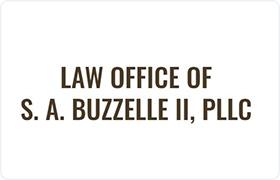 Buckeye Credit & Debt Lawyers, Arizona
Buckeye Credit & Debt Lawyers, Arizona
Sponsored Law Firm
-
 x
x

Click For More Info:
-
Law Office of S.A. Buzzelle II, PLLC
14050 N 83rd Avenue Suite 290 Peoria, AZ 85381» view mapBankruptcy & Debt Law Your Trusted Bankruptcy Attorney
If you are in need of legal services for matters relating to bankruptcy and divorce, rely on Law Office of S. A. Buzzelle II, PLLC in Peoria, AZ.
800-873-4991
Lawyers
1-7 of 7 matches
Personal Injury, Credit & Debt, Family Law, Employee Rights, Entertainment
Business, Credit & Debt, Commercial Bankruptcy, Bankruptcy & Debt
Foreclosure, Litigation, Credit & Debt, Bankruptcy, Bankruptcy & Debt
Reorganization, Credit & Debt, Bankruptcy, Bankruptcy & Debt, Collection
Consumer Rights, Insurance, Credit & Debt, Bankruptcy, Mass Torts
Bankruptcy, Credit & Debt, Litigation, Commercial Real Estate



 Stanley A. Buzzelle II Peoria, AZ
Stanley A. Buzzelle II Peoria, AZ Practice AreasExpertise
Practice AreasExpertise